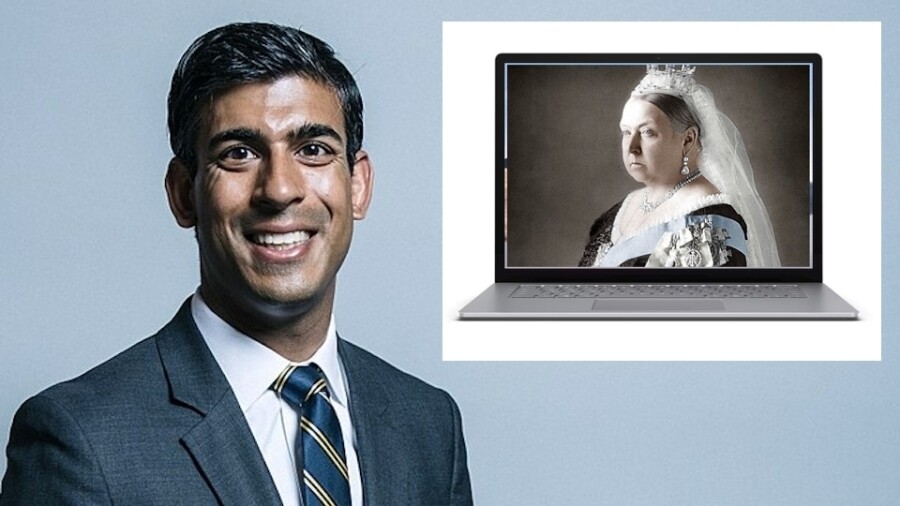
LONDON — The Tory government led by UK Prime Minister Rishi Sunak unveiled this week a public questionnaire to be used during its current review of legislation dealing with adult content.
As XBIZ reported, Sunak ordered a full review of British pornography laws in July. The conservative The Telegraph newspaper explained at the time that the Prime Minister “wants all legislation covering pornography both on and offline to be reviewed to ensure that it is ‘fit for purpose’ in tackling exploitation and abuse.”
The recently unveiled questionnaire asks the general public questions about their own notions about “the impact of pornography,” the BBC reported, and about “the effect of porn on relationships, mental health and attitudes towards women and girls” among other topics.
This is the first development in the Sunak government’s “porn review” since the appointment last month of a Conservative peer, Baroness Gabrielle Bertin — an unelected member of the aristocratic House of Lords — to lead the review.
Baroness Bertin “said the review would help ‘future proof the law’ as technology evolved,” BBC reported.
An FSC representative told BBC that it was “wary” of the review’s framing of sexual expression as “a threat and a societal harm,” but hoped the Tory government was “honest in its invitation to involve the adult industry in this discussion” and not merely use it as a “pretext for censorship.”
“Despite the sometimes fevered headlines and political speeches, we are a legal, ethical industry with families ourselves, one that prioritises consent and safety, and wants to keep minors from accessing our content as much as others do,” the FSC rep added.
Querying the General Public Amidst a Moral Panic Campaign
Sunak’s government originally unveiled the review during the debate about the controversial Online Safety Act, stating that because “there are currently different regimes that address the publication and distribution of commercial pornographic material offline, such as videos, and online,” his government wanted to “ensure any pornography legislation and regulation operates consistently for all pornographic content.”
The U.K. — a monarchy with no written constitution and an unelected chamber of Parliament which includes birthright aristocrats — has no blanket free-speech protection like the U.S. First Amendment.
After years of delays, the Sunak government made the controversial bill a priority in 2023, seeking to hand a victory to social conservatives, religious crusaders and SWERF activists. Those groups have been conducting a moral panic campaign around “harmful content” — which for many of them includes all porn — through the U.K. media, marketing the bill as a “save the women and children” measure while disregarding or minimizing privacy and technical issues.
The orchestrated media panic to generate public fear around adult content has continued even after the passage of the Online Safety Act and is currently being deployed to influence Sunak’s “porn review.”
This week, right-wing newspaper The Daily Mail published a sensationalistic report alleging a “crime wave” of rapes by male minors, which the paper outright claims is linked to access to online porn.
The Baroness’ Review
Professor Sonia Livingstone of the London School of Economics told the BBC that she questioned “the lack of emphasis on academic research” about online adult content in issuing the government questionnaire to the general publics. Livingstone urged Baroness Bertin and her team to “look at the evidence researchers had already collated” instead.
Baroness Bertin is a career politician with a degree in French from Southampton University and does not appear to have any advanced studies or professional background on any of the relevant areas for such a review. She is best known as a close associate of former conservative prime minister David Cameron, for whom she acted as spokesperson.
Baroness Bertin issued a statement in her new role, asserting that “the damaging impact that extreme pornography is having on society cannot be allowed to continue unchecked.”
Asked about the evidence and research that is available to the review’s staff, Prof. Livingstone told the BBC, “I hope they read it.”
